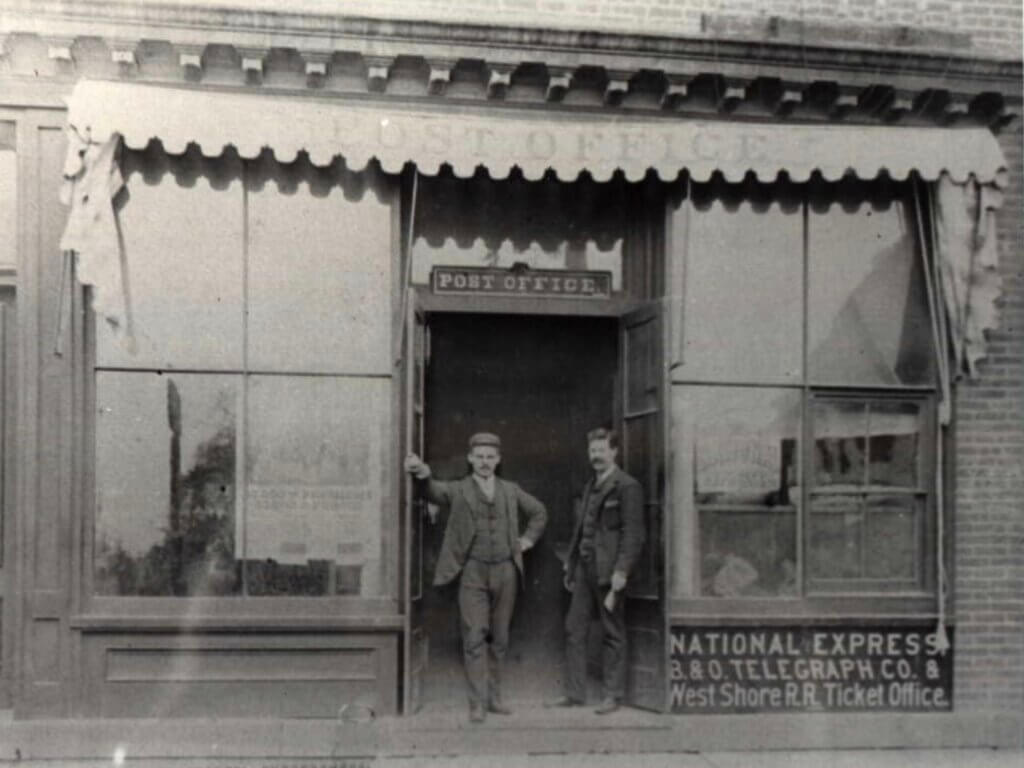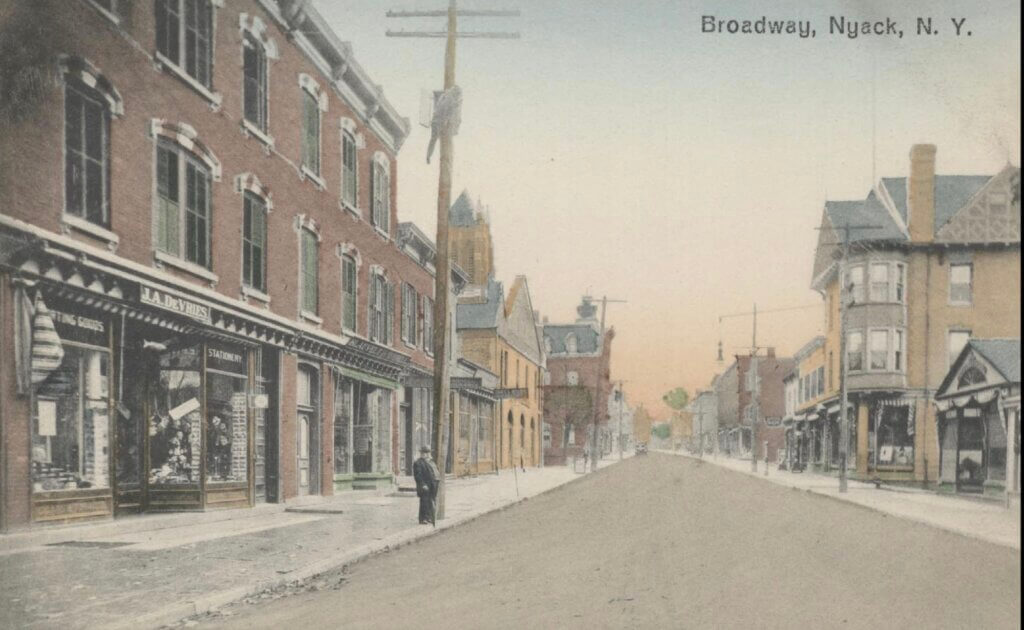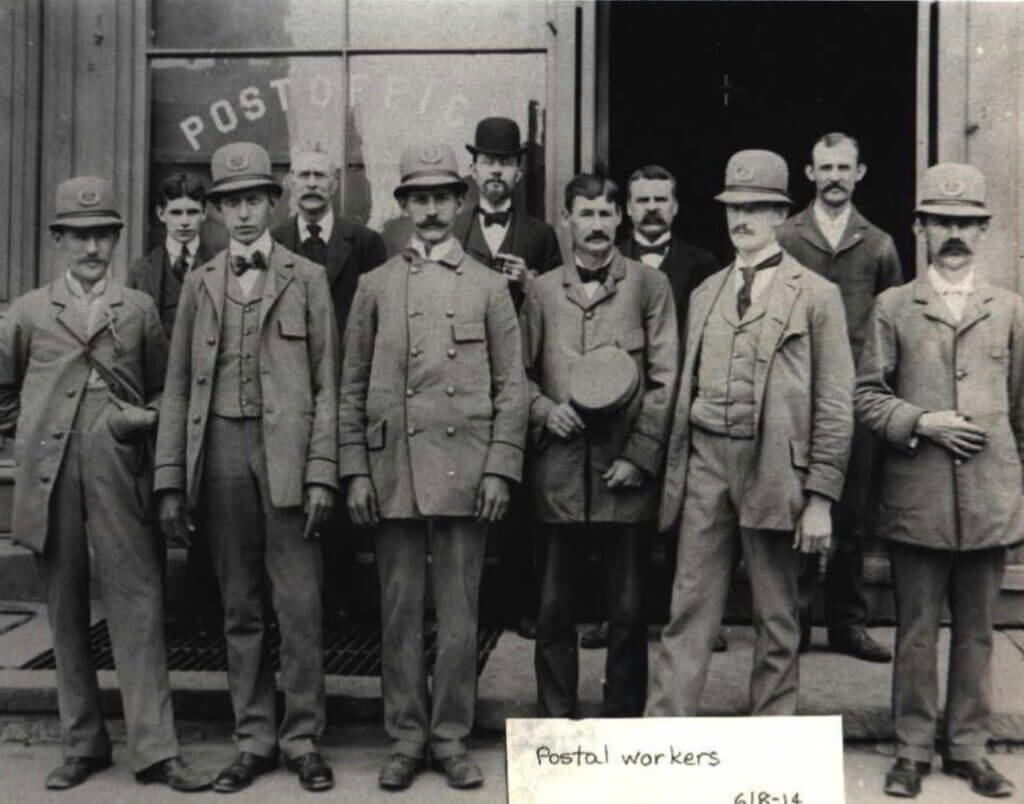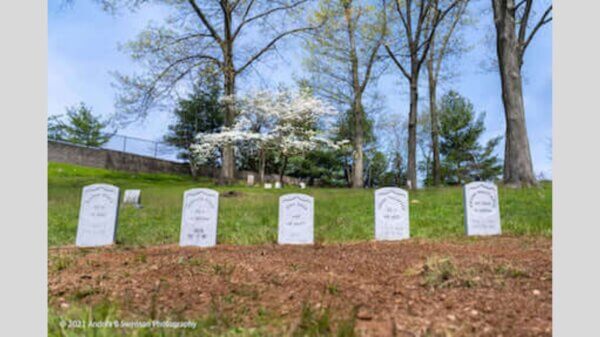It’s unclear why the Nyack Postal Service chose April Fools’ Day in 1899, to switch from post office pickups to home delivery, but the transition required significant preparation. Each home needed a standardized street address, mail carriers had to be hired and uniformed, and delivery routes had to be mapped. Prior to this, Nyack’s residents picked up their mail at the post office. This practice dated back to 1835 when the first post office operated out of Van Houten’s store at Upper Nyack Landing, where residents sifted through a cigar box to retrieve their mail.

Confusion was inevitable. With multiple villagers sharing the same last name—such as Blauvelt—misdelivered mail was a common concern. Homes lacked street numbers, and mailboxes were virtually nonexistent. When the first carriers set out in matching gray suits and jaunty hats, they unwittingly walked into an April Fool’s Day of logistical challenges—but also a pivotal moment in modern convenience.

The Nyack Post Office in 1899
After Nyack’s first post office was established, postmaster positions became federally appointed in 1836, shifting with political tides. Consequently, post office locations frequently moved up and down Main Street and South Broadway including at the Dry Dock Hotel, the Wigwam, and Collin’s jewelry store. By the late 19th century, the post office found a stable home in the Post Office Block on South Broadway (now Tallman Towers). Mail arrived five times a day via a two-wheel pushcart from the Nyack train station at Franklin Street and Cedar Hill Avenue, then was sorted using a “state-of-the-art” routing system by carrier and block.
To qualify for home delivery, Nyack had to meet federal requirements, including an annual mail volume of $10,000. The village narrowly made the cut, thanks to the Christian Missionary Alliance Publishing Company in South Nyack. Certified by the U.S. Postmaster General on November 29, 1898, the village then installed 28 mailboxes, improved sidewalks, street lighting, and signage, and ensured homes displayed addresses. Originally scheduled to begin on March 1, 1899, the rollout of home delivery actually occurred on April 1.
.
Nyack’s First Letter Carriers

Eleven applicants took the civil service exam for the new carrier positions. Four were hired, plus one substitute, each earning $800 per year (about $30.5K today):
- Harry Thomas covered Route 1, extending to Hook Mountain. With large estates and long driveways along North Broadway, he initially took shortcuts through fields until an order required mailboxes near the road.
- Ed Baldwin, originally a fish market owner, was the first substitute. He soon took over the South Nyack and Grand View route, often running errands for housewives and delivering groceries along with the mail.
- William Colsey handled Broadway, Upper Grand View, and Station Lane. Known for his dedication, he would rise at 2 a.m. to deliver a late-arriving letter. During Christmas, he famously pinned mistletoe to his hat.
- Joseph Auer, a Nyack native fluent in Italian and German, took on a wagon route after the addition of Central Nyack to the route.
- Phillip Doarzaph was well-liked but suffered a stroke after four years. He was reassigned to a wagon route to ease his workload.
The First Day: April 1, 1899
On their inaugural routes, carriers relied on postal whistles and door knocking to announce deliveries. Many residents, especially women, invited them inside for coffee and sandwiches. The workday was grueling: three delivery rounds—at 7 a.m., midday, and 6 p.m.—covered six miles per route, totaling 18 miles per carrier. Each handled an average of 150 letters per trip. Street lighting was sparse, leading to mishaps—Joseph Auer, for instance, collided with the rector of Grace Episcopal Church in the dark.
Exhausted mail carriers had Sunday to recover from their arduous first day.
Looking Back
Today, we take mail service for granted. Many no longer send letters, yet the daily trip to the mailbox still carries a sense of anticipation—much like it did for Nyack’s villagers on April Fool’s Day 1899, when they met their first mailmen in gray suits and jaunty hats.
Mike Hays lived in the Nyacks for 38-years. He worked for McGraw-Hill Education in New York City for many years. Hays serves as President of the Historical Society of the Nyacks, Vice-President of the Edward Hopper House Museum & Study Center, and Upper Nyack Historian. . Married to Bernie Richey, he enjoys cycling and winters in Florida. You can follow him on Instagram as UpperNyackMike.
Editor’s note: This article is sponsored by Sun River Health and Ellis Sotheby’s International Realty. Sun River Health is a network of 43 Federally Qualified Health Centers (FQHCs) providing primary, dental, pediatric, OB-GYN, and behavioral health care to over 245,000 patients annually. Ellis Sotheby’s International Realty is the lower Hudson Valley’s Leader in Luxury. Located in the charming Hudson River village of Nyack, approximately 22 miles from New York City. Our agents are passionate about listing and selling extraordinary properties in the Lower Hudson Valley, including Rockland and Orange Counties, New York.









